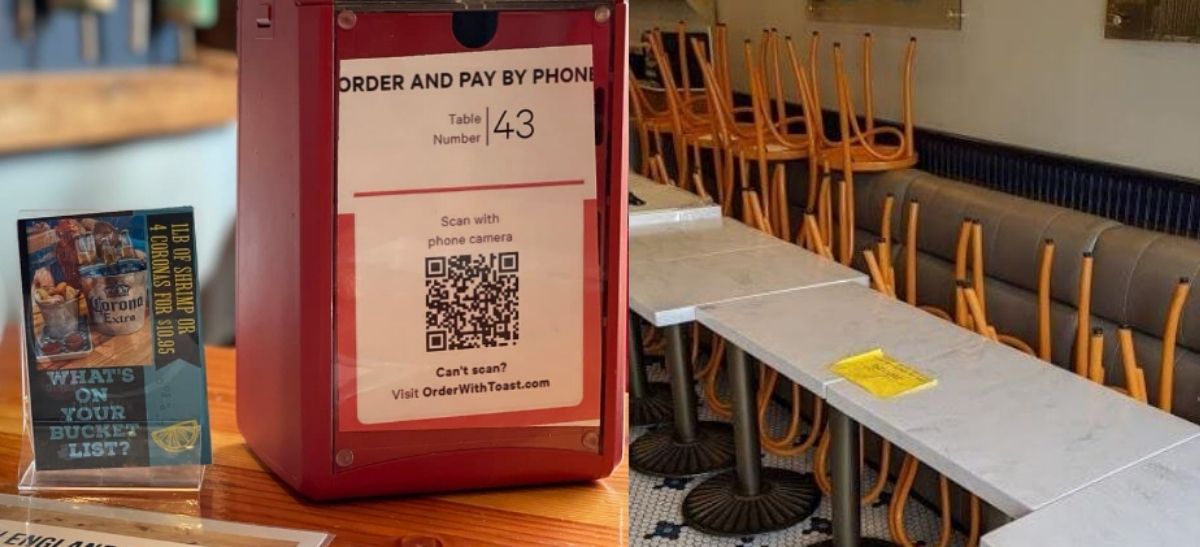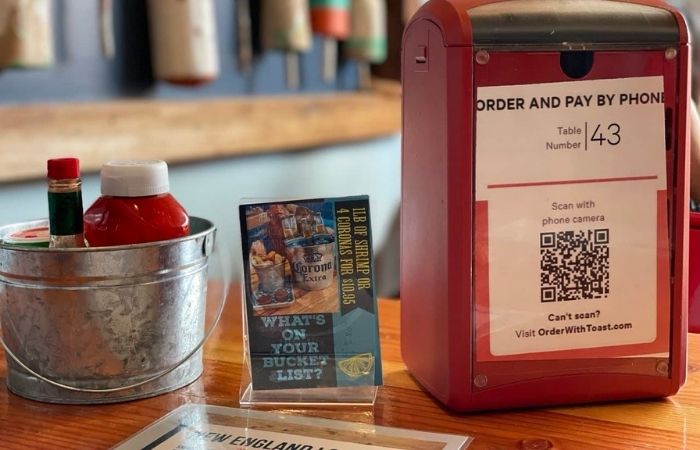Early Bird
Deadline
January 31, 2026
Judging
Date
May 18, 2026
Winners
Announced
June 10, 2026

There is no doubt that restaurants were hit hard during the early days of the pandemic. The pandemic ultimately devastated the entirety of the restaurant industry and impacted millions of Americans. The United States slowly began a shutdown in March of 2020 due to the rise of covid cases. This shutdown included restaurants all across the country, and this led to a whole industry that was left without work overnight. Instantly the community of sommeliers in the country had an uncertain future.
Sommeliers work in restaurants as beverage professionals, so what happens when the majority of restaurants in the country shut down over the course of a week? Sommeliers were left with uncertainty, alongside other millions of restaurant workers.
The question of when the world would open up again wasn't even a topic of discussion for the first year. This resulted in the closure of many restaurants and drove a large number of sommeliers to switch careers. It wasn’t long after the shutdown began that sommeliers really felt the effects of this pandemic. The constant chaos of changing rules, both by states and individual counties led to confusion. There were multiple re-openings and many restaurants that had to shut down.

Empty banquettes inside a Campbell, CA dining establishment - Source: Thomas Brenner
Many talented people in the hospitality industry had to pivot to a new career or were left unemployed without answers or support for extended amounts of time.
Some hospitality professionals were without work for up to a year, and some couldn’t collect unemployment. It was tough seeing how many individuals and families were affected by the lockdown. The fear of covid mixed with the changing laws and random shutdowns and reopenings left people in the industry exhausted and scared.

United Sommeliers Foundation
The United Sommeliers Foundation, Created during the global COVID-19 crisis, has established a fund to provide financial assistance to professional sommeliers finding themselves in vulnerable and uncertain positions. The hospitality industry has come to a screeching halt causing many to lose their jobs. During these unprecedented times, it is unknown what will happen when restaurants and hospitality establishments prioritize their staff re-hiring efforts.
Sommeliers were in abundance prior to the pandemic. There were long waitlists to take tests for organizations within the sommelier community. There was such a demand for some tests that it would take years before people could even get accepted and invited to the exam. There has been a rise in sommeliers for almost a decade, and the pandemic created a real challenge for most sommeliers to continue their career paths in restaurants.
When the world shut down last March, sommeliers had a hazy future, and along with the rest of the world, they were unsure when restaurants would reopen again. This uncertainty led people to change careers, relocate from expensive cities, and find more stable jobs. Some people braved their health and safety by working for restaurants that pivoted during the pandemic. Some people didn’t have a choice but to work.
There was fear in the air for the first few months, and then a sense of normalcy took over. This was despite the masks, rules, and the ongoing pandemic.

From the Press Club being a restaurant to now a wine retail store, Mauro Cirilli did a complete 180 to keep it alive during the pandemic. Read the full story of the pivot here.
When restaurants are fully staffed, and a sommelier can focus solely on beverage sales, they add a unique essence to the restaurant. Their passion and knowledge are seamless when speaking about wine, food, and pairings. They create an experience for guests. The sudden shutdown of restaurants startled the whole community. Ultimately, sommeliers became irrelevant when restaurants shut down. They went from having a very specific job that was niche, to nothing.

Most of the restaurants are now asking guests to use QR codes instead of a printed menu to order food and drinks.
Luckily, some states were quick to change laws and allowed for the selling of alcoholic beverages to go. Restaurants were forced to be creative and quick. Sommeliers and wine teams pivoted from selling wine tableside to selling bottles to go and assisting with the success of takeout. Some restaurants offered discounted wine, glasses of wine, or batched cocktails as ways to promote beverage sales. While fine dining restaurants pivoted toward selling unique and rare wines from their cellars and craft cocktails to go along with blind tasting kits.
Most people in the restaurant had to spend most days doing tasks that revolved around the success of take-out. A very different lifestyle than a fast-paced, chaotic service of a normal night. This mundane work drove those who love the chaos of the restaurants to leave restaurants. Some sommeliers simply waited it out, and some switched careers entirely.

Print menu and getting the bill after the meal have been replaced with the do-it-yourself process at a lot of restaurants.
The passion of service melted into survival mode for most. Extremely talented professionals had to pause their careers to help keep their establishments open. There was fear to work, and fear not to work. The pandemic affected everyone in the restaurant industry, and most are still just trying to recover from the roller coaster of the last year and a half. The many re-openings of restaurants and changing of laws have become challenging to keep up with.

Suzaan Hauptfleisch, Owner of Kaia, Source: Suzaan Hauptfleisch
From online boot camps to fast food, these are the pivots that kept wine bars in business during the roller-coaster ride that was 2020.
When cities began reopening some restaurants opened immediately and some were hesitant because it was still the peak season of the pandemic. Most cities reopened and closed multiple times due to surges in covid variants, and this also was a factor that led to a shortage of restaurant staff. The inconsistency of work created a shift in careers for those who were veterans in the restaurant industry.
Currently, restaurants are dealing with a shortage of staff, and this will greatly impact the role of a sommelier in a restaurant. Sommeliers will need to be more flexible during service, and their role will require more skills and the ability to multitask. Some restaurants are struggling with keeping open due to the lack of tourism and people dining out. There are so many factors that play into the success of a restaurant, and the pandemic tested a lot of these.
The shutdown created more responsibility for everyone in restaurants due to the overall shortage of staff. There are new challenges that restaurants must face such as parklets, changing mask mandates, and the constant and daunting fear of the virus. Sommeliers will have to navigate the new challenges that arise with the pandemic all while maintaining grace and hospitality during service.
The role of a sommelier is unique because they have the ability to create unforgettable memories for guests through the selection of beverages. A sommelier is unique in their ability to assist in any role, while still being extremely knowledgeable in the service and sales of beverages. A successful sommelier can be a hidden gem for service, someone who can really help with the flow and the success of service.
Most restaurants right now are spread extremely thin with their staff. Restaurants are busy, and guests are expecting pre-pandemic service. The restaurant industry is still struggling immensely. The turnover rate in this industry has always been high, but now it is mixed with the low number of applicants applying to the vast amount of hospitality jobs currently available. A sommelier's role will become more integral to the entirety of the front-of-the-house staff. A successful sommelier has a deeper understanding of service and the intricacies of other roles throughout the dining room floor, so they are crucial for the success of the restaurant.
Wine professionals throughout the industry share the love of wine, service, and the chaos of restaurants. This passion will continue to drive sommeliers to provide excellent service and passion whilst juggling the uncertainty of the ongoing pandemic. With the reopening of cities, the wine community will be back to normal with wine events and tasting groups can soon get back together safely so there is a sense of community throughout the industry.
A unique aspect of the wine community is the shared desire for ongoing education. A majority of sommeliers are continuously studying for exams, and this drive for education creates momentum and energy within a restaurant. This passion for learning can help with the morale of the staff and can help the atmosphere of the restaurant. Most sommeliers who are not actively learning, are actively mentoring staff and this can help with the overall comradery of the team and staff.
Written by: Jessica Dobrin, Lead Sommelier and Events Lead at Beverage Trade Network.
Enter your Wines now and get in front of top Sommeliers, Wine Directors, and On-Premise Wine Buyers of USA.
